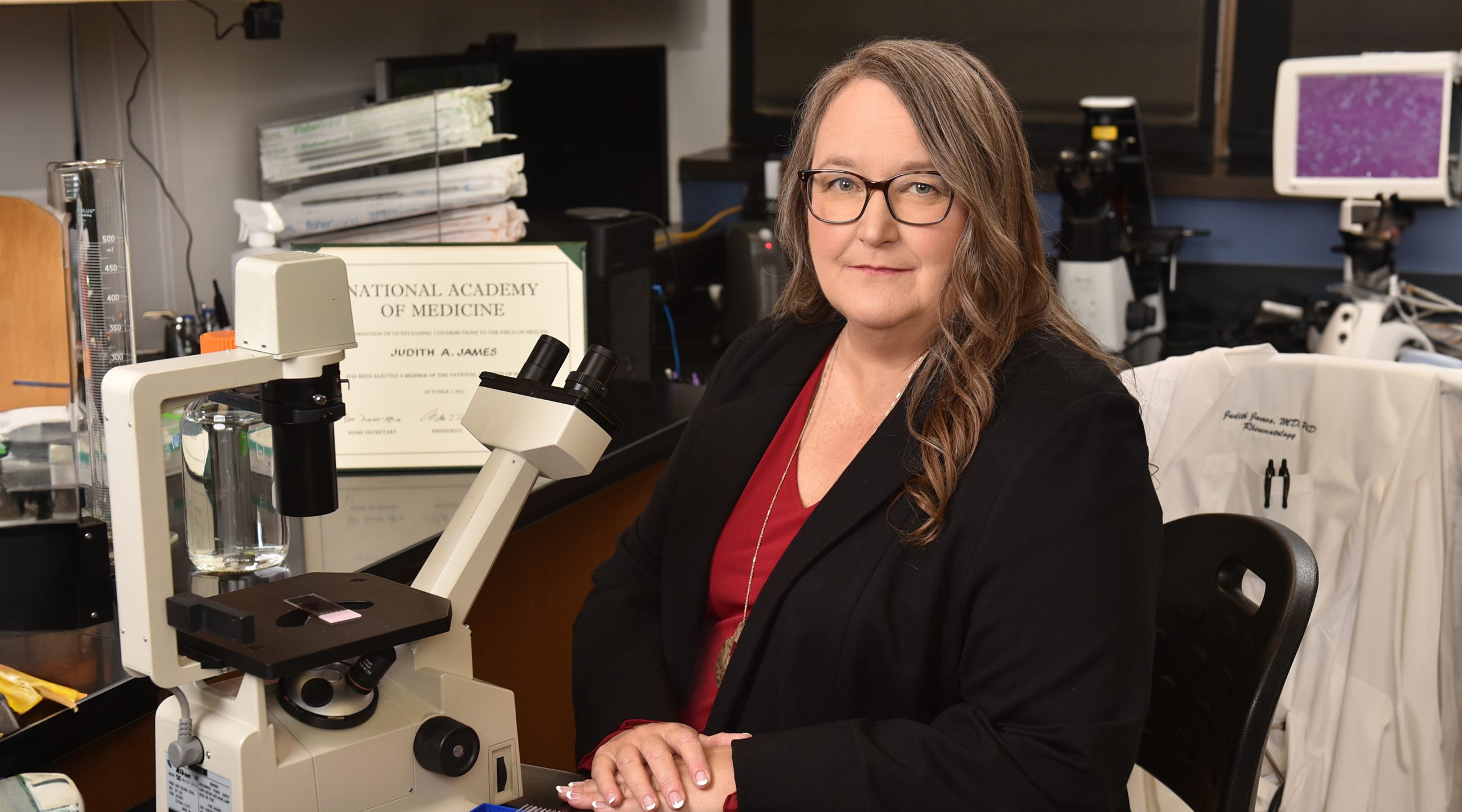Warning: Undefined variable $post_id in /srv/http/omrf.org-2026/site_root/wp-content/themes/omrf-2025/single-findings.php on line 31

Cancer cells usually have some sort of mutation – an alteration that differs from a cell’s typical makeup – that causes them to grow and divide in an uncontrolled way. This kind of uncontrolled, disordered growth is what causes tumors and other forms of cancer.
Chemotherapy is a type of cancer treatment that uses drugs to kill cancer cells or to stop them from growing or dividing. However, traditional chemotherapy is a sort of blunt instrument. What I mean by that is these drugs aren’t “smart” enough simply to kill off cancer cells. Instead, to get them, they must cast a wider net, targeting all rapidly growing and dividing cells in the body.
As a result, while chemotherapy can kill cancer cells at the initial site of the cancer – and, often, other areas where the cancer has spread – it also kills rapidly dividing non-cancerous cells. That’s where the reproductive issues come in.
In women of reproductive age, mature eggs are typically released every month during the menstrual cycle. These eggs divide quickly, so chemotherapy often harms them.
Within the ovaries, there are also a number of rapidly growing cells, including follicles that contain a woman’s supply of remaining eggs. Because these cells grow rapidly, chemotherapy can harm them as well, which can cause the ovaries to stop releasing eggs and producing estrogen. Damage to the ovaries can also lead to the decreased production of hormones like estrogen.
All of this can result in temporary or permanent infertility.
In males, chemotherapy can cause similar issues. The drugs can kill or impair the cells in the testicles responsible for sperm production, triggering a temporary or sometimes permanent decrease in sperm count and reduced sperm motility. Depending on the type and dosage of the drugs, chemotherapy can even result in complete infertility.
Finally, it’s important to avoid getting pregnant during chemotherapy. Because a fetus undergoes cell division rapidly and frequently as it develops in the womb, chemotherapy drugs can cause birth defects or a miscarriage.
If you are of reproductive age, are considering having children, and require chemotherapy, it’s important to talk to your doctor before beginning treatment. Options exist for the preservation of eggs and sperm that can enable childbirth after the completion of cancer treatments.
Dr. Judith James, a physician-scientist, is OMRF’s executive vice president and chief medical officer. Submit your health questions at omrf.org/AskDrJames.
– Read more from the Winter/Spring 2025 edition of Findings President’s Letter: The Life-Changing Impact of Clinical Research The Searcher Family Legacy Voices Three-Peat Meeting the Challenge A Biologist From Birth On a Mission Coming to America